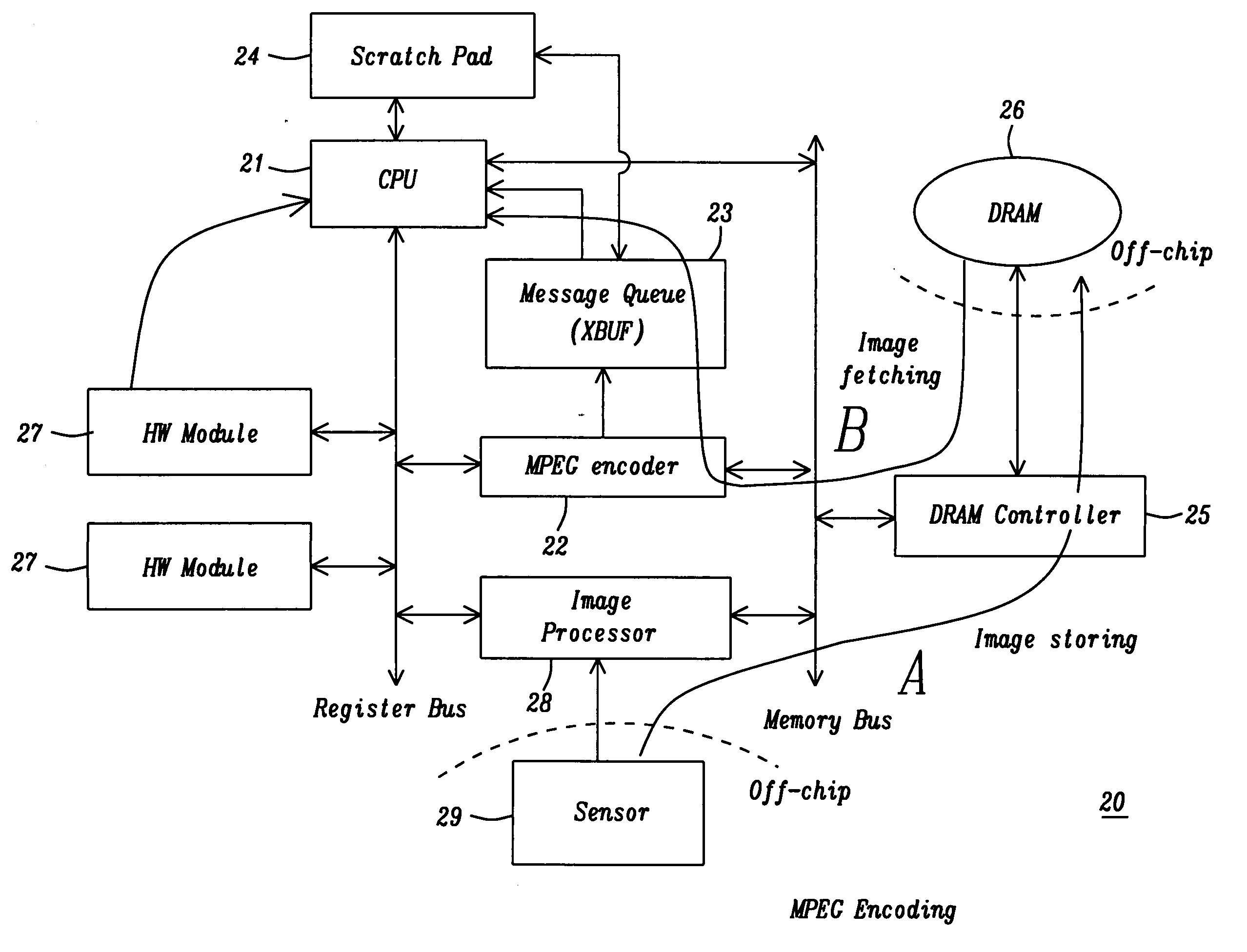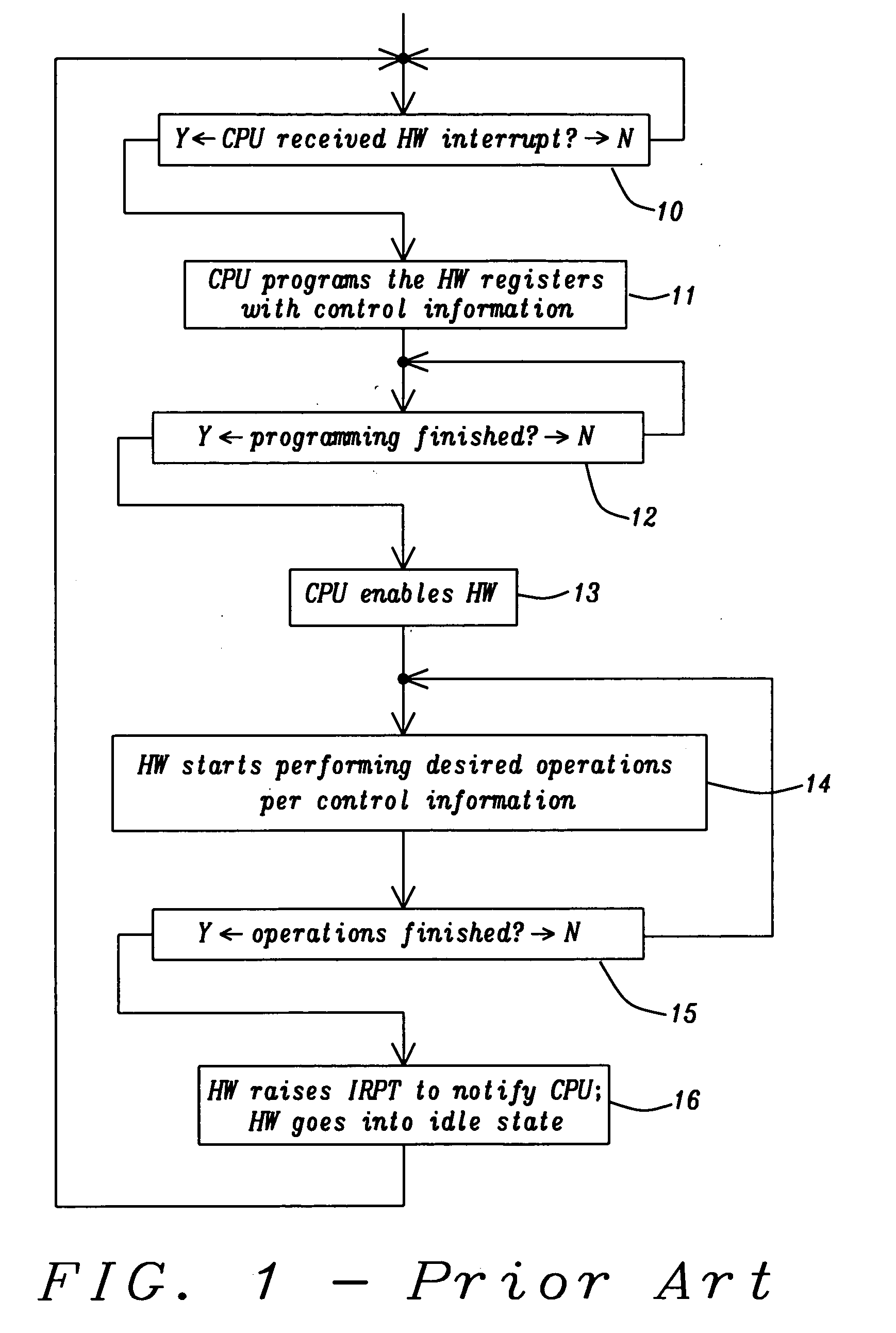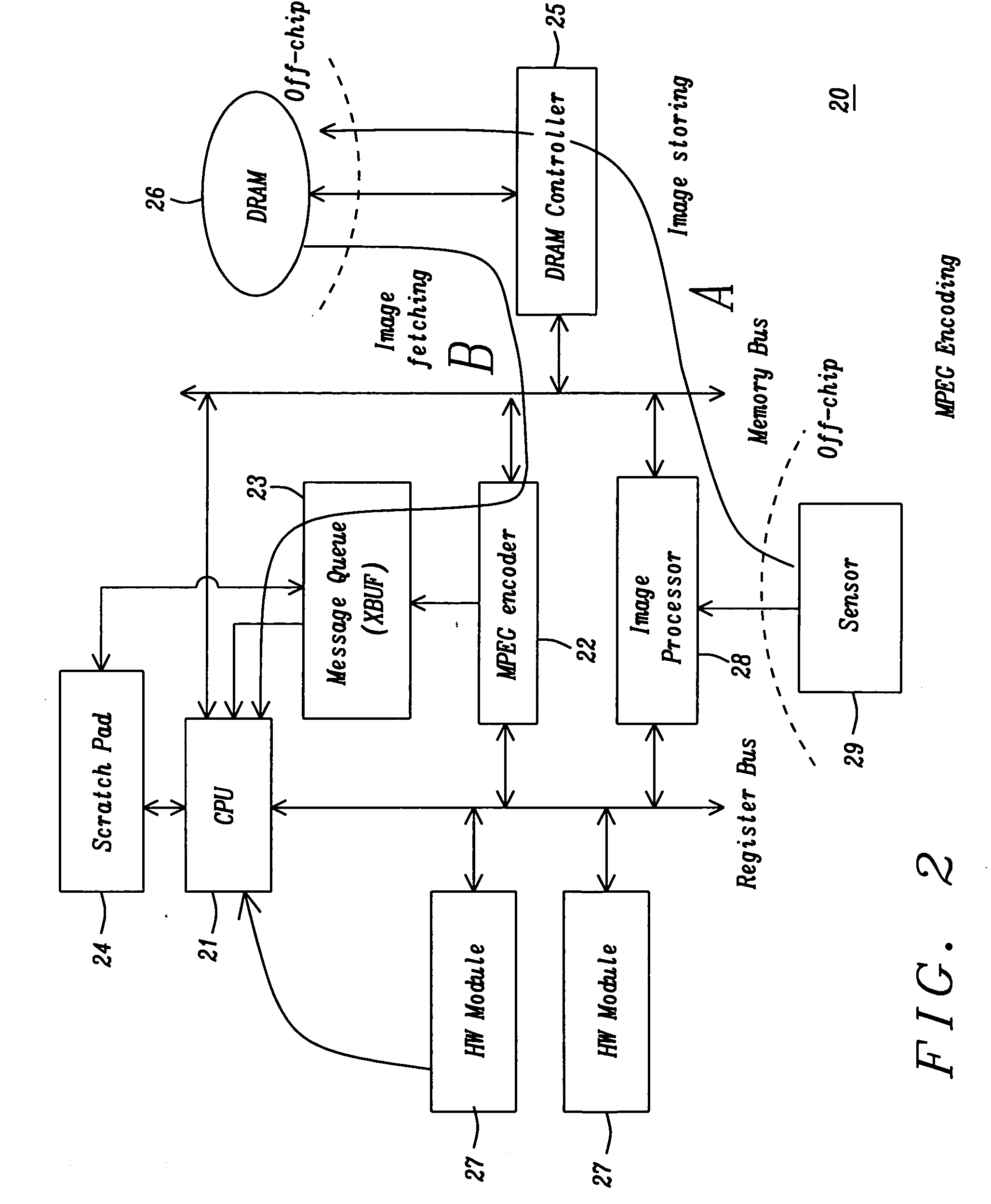Self-synchronizing hardware/software interface for multimedia SOC design
- Summary
- Abstract
- Description
- Claims
- Application Information
AI Technical Summary
Benefits of technology
Problems solved by technology
Method used
Image
Examples
Embodiment Construction
[0029] The present invention provides a very successful solution of the problem outlined above by using a combined data / control message queue between the hardware (HW) and the software (SW) as a solution to the HW / SW synchronization problem. We call this combined data / control message queue the XBUF (Xfer buffer). Our application is MPEG encoding and decoding, but the invention itself is general in nature and can easily be extended to other SOC applications such as communications, data storage, etc. Whenever data processing is shared by HW and SW, the present inventive technique can apply. The queue depth of the XBUF can be either fixed or variable, depending on the application requirement. The larger the potential speed difference between the HW and the SW is, the deeper the queue needs to be. The message words in the XBUF are tagged to indicate whether a particular word contains data or control information (essentially MPEG control information). Different tags correspond to differe...
PUM
 Login to View More
Login to View More Abstract
Description
Claims
Application Information
 Login to View More
Login to View More - R&D
- Intellectual Property
- Life Sciences
- Materials
- Tech Scout
- Unparalleled Data Quality
- Higher Quality Content
- 60% Fewer Hallucinations
Browse by: Latest US Patents, China's latest patents, Technical Efficacy Thesaurus, Application Domain, Technology Topic, Popular Technical Reports.
© 2025 PatSnap. All rights reserved.Legal|Privacy policy|Modern Slavery Act Transparency Statement|Sitemap|About US| Contact US: help@patsnap.com



